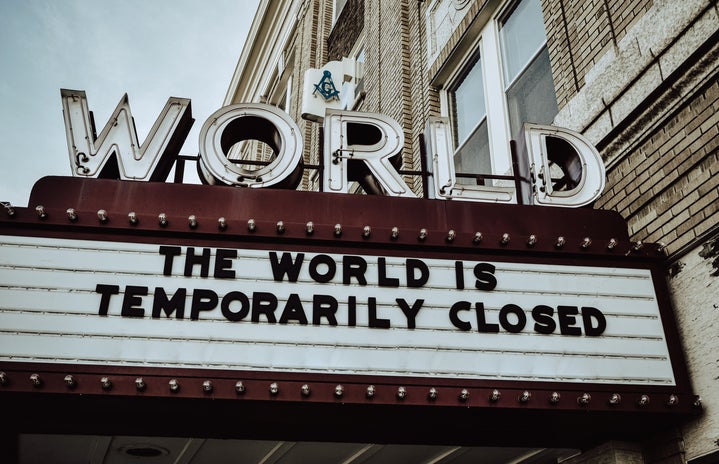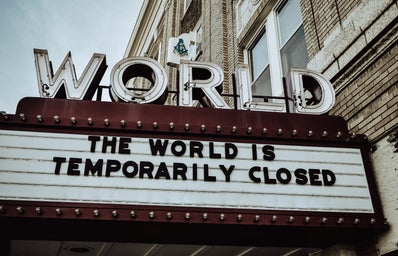Have you ever felt so mentally and physically drained that even going about your day-to-day routine is seemingly difficult or near impossible? With assignment deadlines, working part-time jobs and the exhaustion of being in a pandemic for three years, do you feel unmotivated and helpless?
You have no energy to leave your house or answer your friends anymore and can barely remember the last time you washed your bedroom sheets. Burnout is a real experience many people alike go through and can be difficult to understand and overcome.
I was 16 when I began working at Shoppers Drug Mart. I was, and remain, the only female merchandiser on the team. It was always a challenge juggling work and school, going to late-night shifts and early morning classes while balancing the demands of assignments. It has become increasingly more difficult, however, since the pandemic, and I am burnt out.
Burnout is difficult to work through. It is described as stress and exhaustion caused by work and is something that many people experience throughout their life. March 2020 was the last month I was in school before the world went into chaos. I was working 90 hours per week as a part-time employee when people were rushing to markets to stock up on food and supplies as if an apocalypse was going to happen. Toilet paper, canned goods, pet food, medication, cleaning supplies; our shelves were wiped clean and it was increasingly challenging to restock inventory amidst the demand for products. Co-workers were leaving, one after the other. Whether it was from getting sick or not wanting to be at risk while working in a pharmacy, we were short-staffed. Those who stayed were overworked and overwhelmed by the pressure suddenly put on us.
Days and days went by as coworkers and I would constantly joke, “Didn’t I just see you hours ago?” We would have back-to-back 8 to 12-hour shifts. Many of which were worked by 20-year-old students who were already tired and stressed from working on final exams and projects.
During the pandemic, I felt like I was being put on a pedestal. Whether it be grocery clerks, cashiers, factory workers, delivery drivers, or first responders — we were suddenly seen as “essential” and met with great applause and national pressure to keep on working while the rest of the country stayed (safely) at home. It was up to these workers––up to me––to keep society running.
Most of these workers, like myself, did not have basic protection or support, increased wages, paid leave or access to benefits or health care. Many were left struggling to find child-care support and were forced to work without safe and healthy working conditions. And this only sky-rocketed as the pandemic progressed.
In the early stages of COVID-19, my workplace had a mask policy only for staff; customers were allowed to roam freely with or without a mask and we could do nothing about it. Because we were a pharmacy, we were not allowed to deny entry, and this made our staff uneasy. But I still worked. I worked despite the risk. I worked despite making minimum wage and being exposed to COVID every single day. I worked despite the pleas of my family to stop working. I had no choice. The bills needed to be paid and food needed to be put on the table. At one point, the company gave us a two-dollar raise, which was quickly withdrawn when things were seen to be “getting better.” Yet, two years later, here we are. Things are not getting better.
Over winter break, things got really bad with the outbreak of Omicron. I have been working over 100 hours biweekly (an entire new record for me) and I have never been so tired. I did not get to celebrate Christmas with my family, and when the clock struck midnight on New Year, I was hanging up sale signs in aisle four with my coworkers. It was as if time did not exist for us. It didn’t matter if it was an entirely new day or a new year; every day felt the same. It was as if was living the same day on a loop. I got up, went to work and repeated the same motions. Over and over again with no regard from anyone about my mental and physical health.
It got especially challenging when we started doing COVID-19 testing and vaccines at the same time. Our store felt claustrophobic. No policies were put in place to keep staff safe; it was not mandatory to be vaccinated at work. Testing was done on both symptomatic and asymptomatic people. It was terrifying knowing that people who potentially had COVID were roaming around the store and asking for assistance after having a Q-tip up their nose to see if they were positive.
After two years of the pandemic, I am officially burnt out. Many, many essential workers are burnt out.


